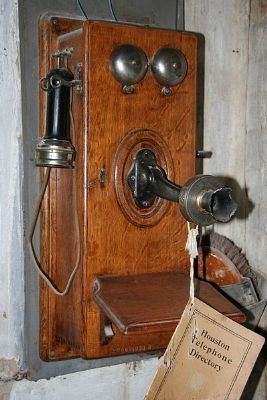
Whatever happened to those days, and why are we now settling for anywhere from three to five times that monthly expense (once special monthly fees and taxes are included) for not that terrific an increase in service?
You might think it is because of the combination of inflation and how much more we get these days for our monthly fees. Yet if that is true, why is it that in France the U.S. dollar equivalent rate today for a bundle that includes high speed internet access (at much faster internet speed than is typically available in this country), telephone service, plus multiple cable TV stations, is $38 a month?
Valerie and I get the cheapest service we can find: no TV subscription (as we use an old analog television set and what comes in via a small local antenna, periodically watching movies [averaging about 50 cents each] obtained via bargain stores), no wireless, a dial-up modem for internet access, a Tracfone cell device that cost $30 plus tax at Wal-Mart and for which I pay $20 plus tax four times a year for extra time and minutes, a monthly low rate for unlimited landline local calls plus $5 for long distance landline calls at 5 cents a minute. Yet, once all the fees and taxes are added in, this rather austere combination still averages $103 a month, an amount we consider robbery.
Nonetheless, our fairly purist stance is coming under considerable pressure. Like so many before us, even at still higher prices we feel the need for an upgrade of our internet plus telecommunications package. We too want the convenience and versatility of more up-to-date utilities so that we can perform what now are considered normally plugged-in functions with a lot less hassle, and are thus in the market for the best new deal available.
All we can find so far are offers that look barely reasonable, i.e. outrageous, but better than some. These "deals" only look good when one excludes the added fees and taxes and the required additional (unwanted) service bundles, and even then are just for a year, after which the provider(s) are free to jack up the rates by a third, 50%, or even more.
When we ask just for the most basic service, for instance high speed internet by itself, we can find reasonably priced quotes (around $15-$25 a month), but if we actually go to buy them we are told they are only available with higher priced TV, wireless, and/or phone services we did not request or particularly want.
I have gone into this much detail with respect to internet/telecommunications services in order to show how extra costs have been piled on, making more money for the big company providers, though with little extra or desired service for the consumer. 
I could have been this specific about any of several categories of spending: airfare, medical and dental services, pharmaceuticals, insurance, auto sales and repairs, water and electrical utilities, financial services, legal services, etc. A host of paid-for services now involve bills with itemized costs, multiple entries for specialized procedures or categories of service, plus added fees and taxes.
We are hardly the only ones to take note of such things. From a new book by David Cay Johnston, The Fine Print - How Big Companies Use "Plain English" to Rob You Blind, as well as interviews of the author, we learn that:
And so it goes.
Primary Source: A Close Look at Your Bills' "Fine Print." David Cay Johnston on NPR; September 20, 2012